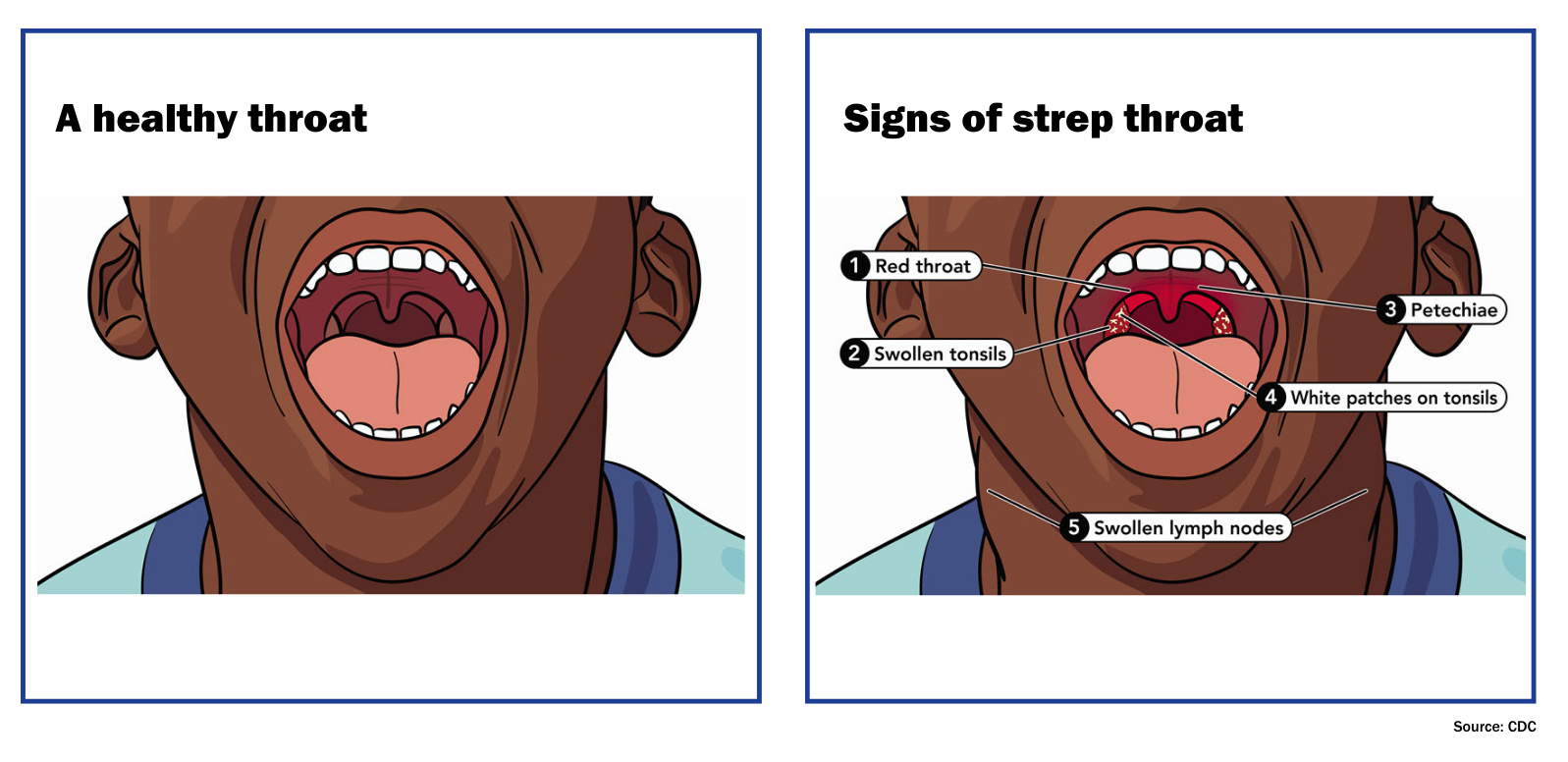Strep throat is currently spreading in the Fairfax Health District. Data from emergency departments and urgent care centers in the community have shown an increase in the number of people who have been diagnosed with strep throat since late January 2023. For the week of March 5-11, there were more visits to ED and urgent care facilities for strep throat than at any time in the past 3 years (since December 2019).
Strep throat is an infection in the throat and tonsils cause by bacteria called group A Streptococcus (group A strep). It is very contagious and is spread to other by direct contact (such as sharing silverware or kissing) as well as by respiratory droplets (sneezes or coughs).
Crowded, or close settings, increase the risk of strep throat, including schools, childcare, or other places where people gather. According to the Centers for Disease and Control and Prevention (CDC), strep throat is more common in children ages 5 years and older than in children ages 3 years and younger and that up to 3 in 10 children with a sore throat have strep throat while that figure for adults is 1 in 10. There is no vaccine for strep throat, and someone can get it again even if they have been sick with strep throat in the past.
Common symptoms may include:
- Fever
- Sore throat that may begin suddenly and may appear red
- Pain when swallowing
- Red and swollen tonsils
- White patches or streaks on the tonsils
- Tiny, red spots on the roof of the mouth (petechiae)
- Swollen lymph nodes in the front of the neck

Doctors can easily test to determine if you or your child has strep throat. Because viruses also can cause a sore throat, seeing your doctor and getting a test is important to know whether a sore throat is strep throat. After testing, they may prescribe antibiotics to help patients feel better and prevent spread to others. People with strep throat should stay home from school, childcare or work until they no longer have a fever and have taken antibiotics for at least 12 hours. It is important to complete the full course of antibiotics prescribed by your doctor, even if you (or your child) feel better before you are done taking them.
Practice healthy hygiene habits to reduce the chance of strep throat.
- Cover your mouth and nose with a tissue when you cough or sneeze.
- Put your used tissue in the waste basket.
- Cough or sneeze into your upper sleeve or elbow, not your hands, if you don’t have a tissue.
- Wash your hands often with soap and water for at least 20 seconds.
- Use an alcohol-based hand rub if soap and water are not available.
- Wash glasses, utensils, and plates after someone who is sick uses them. These items are safe for others to use after they are washed.
Get more information about strep throat.

